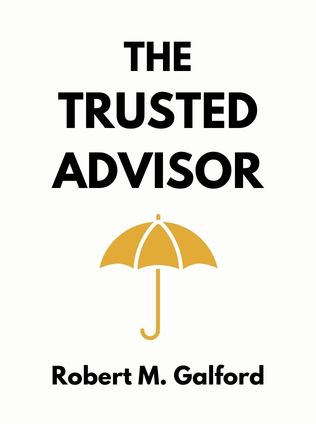
The Trusted Advisor
By Robert M. Galford,
Published 02/2021
About the Author
David H. Maister is a recognized authority on the management of professional service firms. With extensive experience and a wealth of knowledge, Maister has made significant contributions to understanding how to build trust-based relationships in the business world. His insights are backed by years of practical application and scholarly research.
Charles H. Green is a consultant and executive educator, known for his expertise in fostering trust in professional relationships. Green’s work focuses on the nuances of advisory roles and the dynamics of trust between advisors and clients.
Robert M. Galford is the Executive Vice President and Chief People Officer of Digitas, Inc., a leading internet professional services firm. Galford's approach integrates practical business strategies with a deep understanding of human behavior and organizational dynamics.
Main Idea
The central theme of "The Trusted Advisor" revolves around the critical importance of trust in client-advisor relationships. The authors argue that trust is the cornerstone of any successful advisory relationship, emphasizing that advisors must prioritize building and maintaining trust above all else. The book outlines the essential characteristics of trusted advisors, the core skills required to earn trust, and the stages of developing trust-based relationships. It also provides practical advice on how to navigate the complexities of client interactions and deliver valuable, trust-based advisory services.
Table of Contents
- Introduction
- What Is a Trusted Advisor?
- The Three Core Skills of Trusted Advisors
- What Is Trust?
- The Development of Trust in Five Stages
- What Good Listeners Do
- Emotional Framing
- What's So Hard About All This?
- The Lieutenant Columbo Approach
- What Skills Are Required to Build Trust?
- The Quick-Impact List to Gain Trust
What Is a Trusted Advisor?
A trusted advisor places a higher value on maintaining and preserving the relationship itself than on the outcome of any single transaction. They make substantial investments in their clients, often without immediate financial reward, to build a strong, trust-based relationship.
Trusted advisors have distinct attributes that set them apart:
- Focus on the client rather than themselves
- View the client as an individual, not just a role
- Prioritize problem definition and resolution over technical mastery
- Demonstrate a competitive drive aimed at serving the client
- Act based on doing the next right thing rather than seeking specific outcomes
- Motivated by an internal drive to do what’s right
- Use methodologies and techniques as means to an end
- Value the accumulation of quality client-contact experiences
- Believe that both selling and serving are aspects of professionalism
- Recognize that professional and personal lives often overlap
These attributes illustrate a commitment to the client’s long-term success and well-being. The relationship between basketball superstar Michael Jordan and his agent David Falk exemplifies these principles. Falk's willingness to waive fees and prioritize Jordan's interests over immediate financial gain helped build a lasting and lucrative partnership.
The Three Core Skills of Trusted Advisors
The authors identify three core skills essential for trusted advisors: earning trust, giving advice, and building relationships.
Sign up for FREE and get access to 1,400+ books summaries.
You May Also Like
The Subtle Art of Not Giving a F*ck
A Counterintuitive Approach to Living a Good Life
By Mark MansonRich Dad Poor Dad
What the Rich Teach Their Kids About Money - That the Poor and Middle Class Do Not!
By Robert T. KiyosakiHow To Win Friends and Influence People
The All-Time Classic Manual Of People Skills
By Dale CarnegieQuiet: The Power of Introverts
The Power of Introverts in a World That Can't Stop Talking
By Susan Cain



















